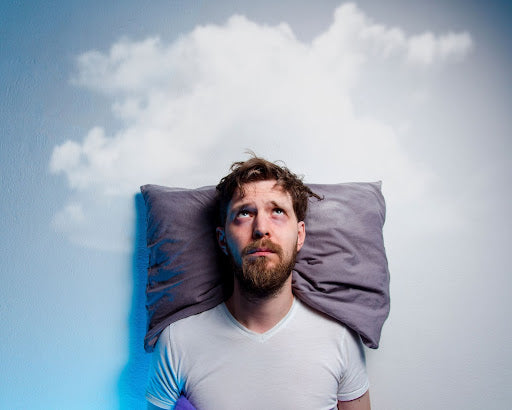Have you ever found yourself staring at the ceiling as the hours tick by during the night? There’s nothing worse than lying there in the dark when you cannot fall into a restful slumber. Without an adequate amount of sleep, you’ll feel tired and irritable during the day, wreaking havoc on your personal and professional life. If you are struggling to fall asleep in the evening, you need to consider what causes may be preventing you from getting enough shuteye.
To help you get to the bottom of the problem, ApneaMed has outlined a few reasons why you may not be able to fall asleep and how to combat the issue.
Temperature
Think about temperature as Goldilocks thinks of the three bears. You can’t have the temperature too warm or too cold. Have your thermostat set at approximately 65 degrees Fahrenheit for optimal sleep. Remember that the ideal temperature may vary slightly from person to person, so test setting the thermostat between 60 to 67 degrees Fahrenheit to find your perfect temperature for a good night’s sleep.
Stress
Life happens. Whether you’re dealing with a stressful personal situation or have a big presentation coming up at work, you may be unable to turn off your mind at night. Stress and anxiety can make it difficult to fall asleep at night because your mind can’t stop thinking about what is making you stressed — a never-ending cycle.
Before bed, set aside time to relax your mind and body to ease your mind and anxiety. Try taking a warm bath with aromatherapy or engage in meditation to ease your mind.
Caffeine
If you have trouble falling asleep at night, you’re probably relying on caffeine to keep you moving throughout the day. Whether you indulge in a cup of coffee, caffeinated soda, or an energy drink, these pick-me-ups help your body forget it is tired.
However, caffeine may be causing more harm than good! While it provides an initial rush to get you through the day, having it too late in the afternoon or evening can disrupt your sleep cycle. Caffeine intake will prevent you from being able to calm your racing mind, keeping you up into the late hours of the night — and if you do manage to fall asleep, it will prevent you from achieving deep sleep. If you are having difficulty falling asleep, limit your caffeine intake and avoid it about five hours before you plan to go to bed.
Late Night Snacking
We all joke about eating a midnight snack, but did you know that your late-night snacking may be preventing you from falling asleep at night? Eating processed or sugary snacks can cause you to experience indigestion or acid reflux. When this happens, you’re going to struggle to fall asleep.
If you need a snack so you don’t wake up starving in the middle of the night, opt for a lighter choice that is more nourishing for your body.
Sleep Apnea
Sometimes poor sleep isn’t caused by the factors mentioned above. Instead, you may have a sleep disorder such as sleep apnea. Obstructive sleep apnea causes the individual to stop breathing multiple times throughout the night.
This occurs when the throat's soft tissues collapse and create a blockage within the airway, leaving the individual choking for air. Most patients don’t even know they’re experiencing breathing disruptions, but they wake up after a full eight hours of sleep feeling completely unrested due to poor sleep quality.
ApneaMed Provides At-Home Sleep Apnea Testing
Suppose you suspect you have obstructive sleep apnea. In that case, ApneaMed’s at-home sleep apnea test provides a comfortable, convenient, and affordable option that you can perform without stepping foot outside the comfort of your home.
Contact our team to learn more if you have any questions about ApneaMed’s at-home sleep apnea test or our sleep apnea treatment equipment.

